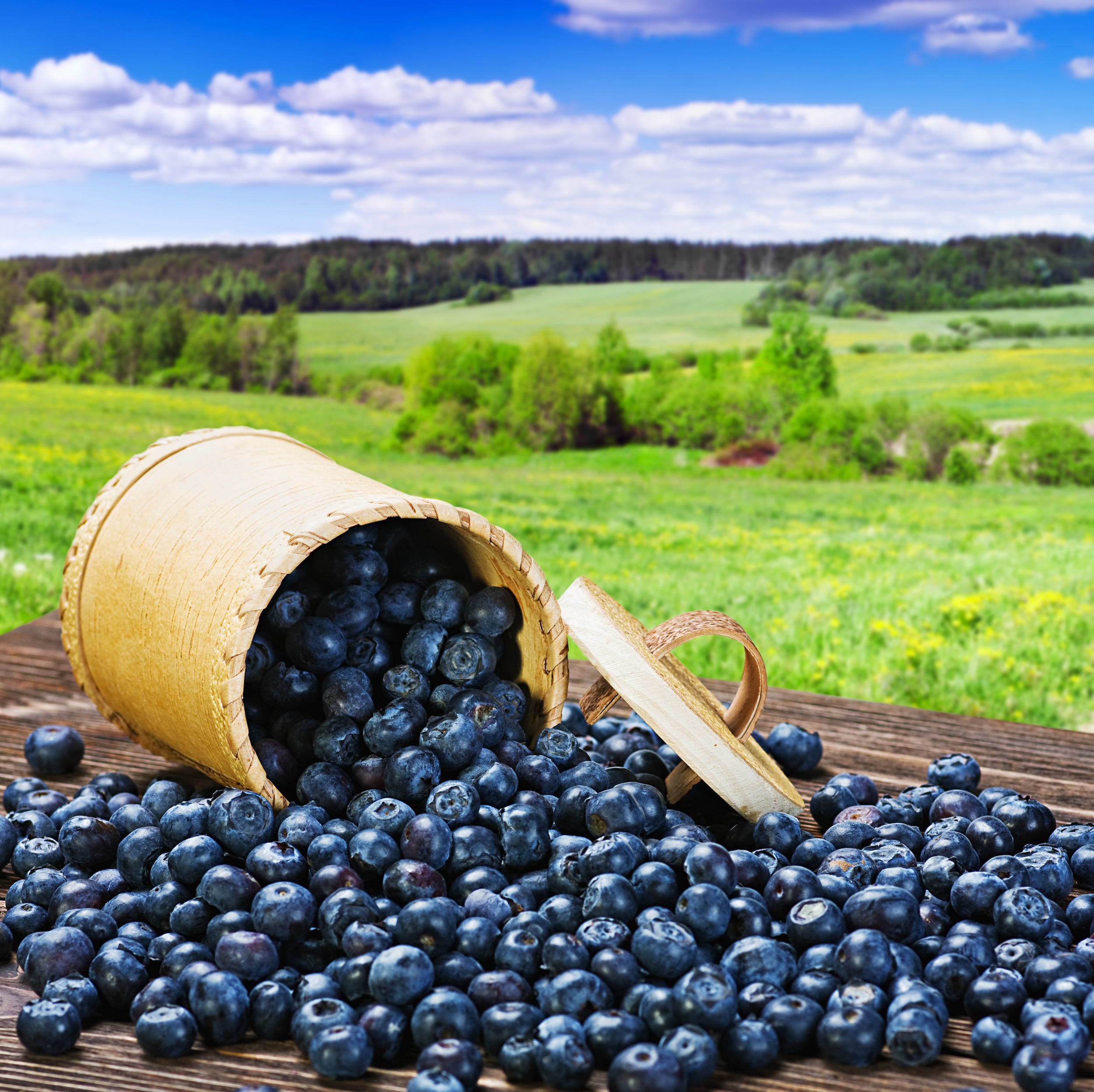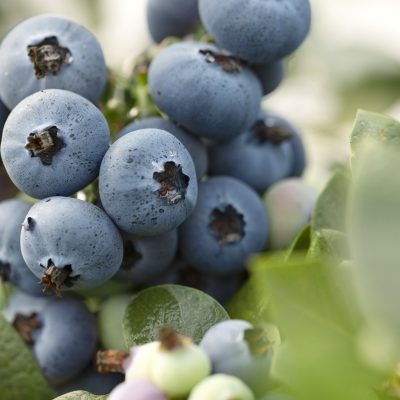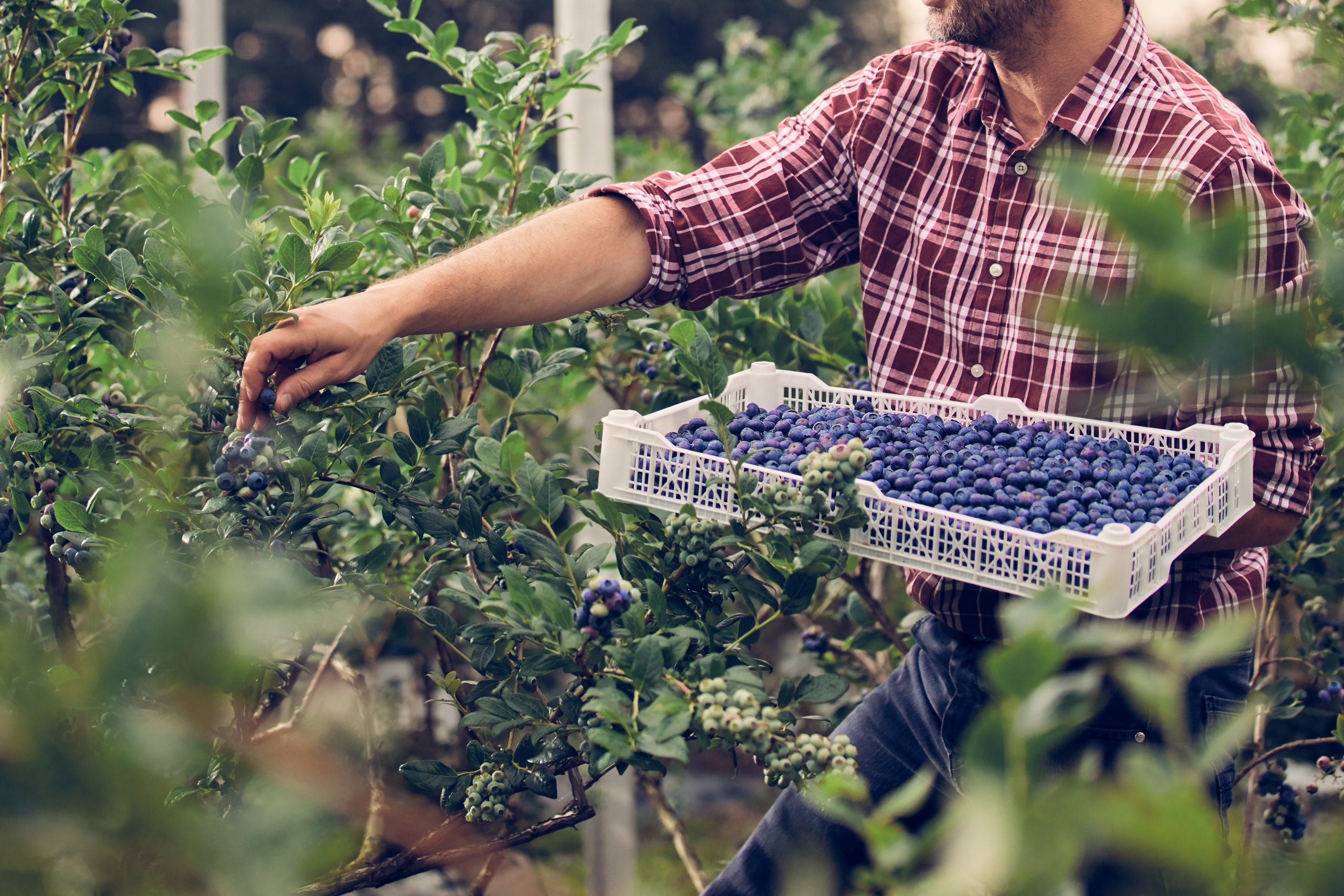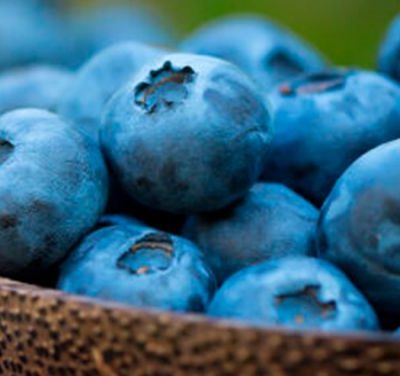Investigating the health benefits of berries
In recent years studies have shown that blueberries can produce many health benefits, from preventing dementia, combatting high blood pressure, to promoting better digestion. NIFA’s support to agricultural and food researchers is enabling them to look closer at the nutritional value and health impacts of these and other berries.
An Agriculture and Food Research Initiative project led by the University of Georgia is studying how blueberry consumption impacts gut health. Specifically, this project focuses on whether and how the body absorbs and uses blueberry pectins (sugars), and anthocyanins (dark blue or purple pigments). These compounds have the potential to reduce gut inflammation that is associated with obesity.
Eldertide, LLC, a small woman-owned business located in Dresden, Maine, has received three NIFA Small Business Innovation Research grants to examine the antioxidant levels and anti-viral properties of elderberries. The company began by looking at native species of elderberries to see which had the highest antioxidant profiles and could be successfully cultivated. This led to the development of a juice blend that contained all of the benefits and nutrients inherent in elderberries. Benefits of elderberries include antioxidant activity to lower cholesterol, improve vision, boost the immune system, improve heart health, and strong anti-viral properties with the ability to protect against certain strains of the flu. This overall immune system support soon translated into one of the company’s most in-demand products, its AnthoImmune™ Organic Elderberry Syrup, which combines certified organic elderberries, elderflowers, and wild Maine blueberries. In 2014, Eldertide LLC, was named a 2014 Small Business Administration Tibbetts Award recipient.
United Tribes Technical College’s “On the Fringe of Survival: How the Wild Environment Gives Native Berries the Edge for Protection of Tribal People’s Health Project” stimulated increased demand for wild berries within tribal communities and in outside markets, for long-term health improvement and economic development. Wild berries, such as chokecherries, cranberries, juneberries, wild grapes, and wild raspberries, traditionally play an important role in the lives of Native Americans. Researchers are screening the berries for naturally occurring compounds that may confer health benefits, such as Type 2 diabetes and chronic diseases in tribal communities.
Aronia berries are rich in polyphenols, a type of micronutrient that may prevent cancer and cardiovascular disease. Pre-clinical and clinical evidence suggest that consuming aronia berries may mitigate inflammation associated with chronic disease. Researchers at the University of Wisconsin-Madison are working to provide a comprehensive understanding of the anti-inflammatory potential of aronia consumption and provide new knowledge about how diet can stimulate the body’s immune function.





